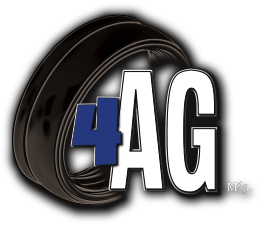Planting Without Plowing- Benefits and Outcomes
Ploughing is a traditional means of preparing mechanical seedbeds by breaking the ground and restoring its framework. Ploughing converts organic matter into soil and thus accelerates its degradation and kills weeds. The ploughed fields are warmer so that farmers can begin to plant their crops beforehand. Although farm tilling is important, it also make farmers face many challenges and costs.
The possible soil erosion due to water and wind is one of the key problems of plowing. The organic matter of last year is left on the surface with no-till technology and soils are immediately boiled into the soil which is not ploughed. It also contributes to preserving the soil. Soil tilling also impacts the life cycle of the weed and soil microorganisms influencing the soil health. Farmers must also determine if tillage damages soil-based microorganisms. Therefore, the usage of cultivator gauge wheel has become so important in farming.
No-till farming requires a variety of expertise in order to sustain higher yields. In order to obtain better land properties it incorporates different agriculture methods, machinery, crop rotating practices. The practice of crop rotation prevents weeds, plagues and diseases of the soil. Pests and diseases will decrease as a result of a reduction of food supply as plants rotate over a multi-year span. Cover plants are used to suppress pests, improve the nutrient content in the soil, and by growing planted plants with long roots, to add mobile nutrients and get it back to the surface of soil.
Farming costs – the costs of labor, irrigation, fuel, and machinery are decreased and the functioning of the soil increased.
Residue of Crops
Crop residues that remain intact are the greatest advantage of the no-till practice. The field surface is contained with crop residues from previous years, thus refrigerate it and increase soil moisture. Crop residues protect the soil against the adverse effects of raindrops and wind and act as the carbon source for soil species.
Machinery
No-tilt plants only make a few passes to stop compaction of the soil and surface crusting. This encourages the sprouting and development of deep roots by plants. The organisms in the soil and the soil itself are rather uncomfortable. In contrast to conventional plowing, there is also considerably less airborne dust.
Healthy land-farming increases the soil's consistency, the quantities of carbon and organic matter, thus safeguarding the soil against drought, water evaporation and structural disintegration. By protecting the natural ecosystem, no-till areas also have insects and earthworms that are large and also more beneficial and are able to avoid disease out breaking in a stronger balance of the microbial population. These species increase the quality and structure of the organic soil. Plants grow deep roots that allow plants to survive droughts in such a climate.
If you wish to get cultivator gauge wheel if high quality in OKC, visit 4AG Manufacturing without delay. We manufacture quality products to meet all your farming needs.


